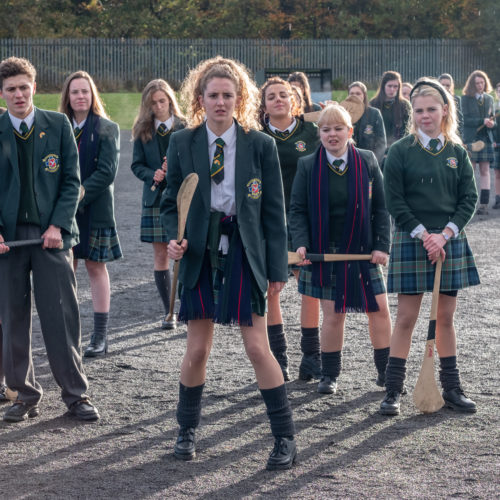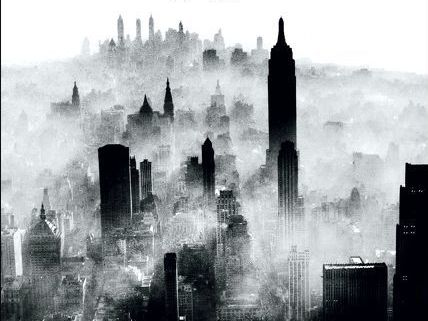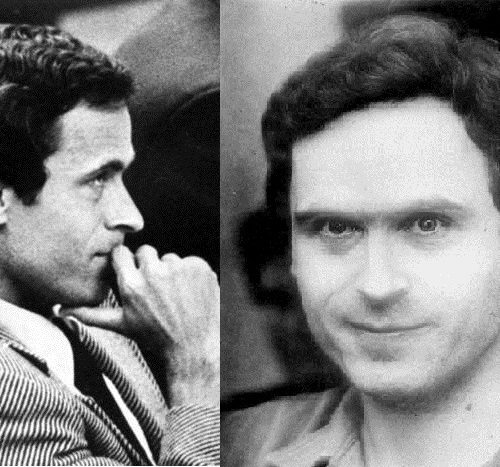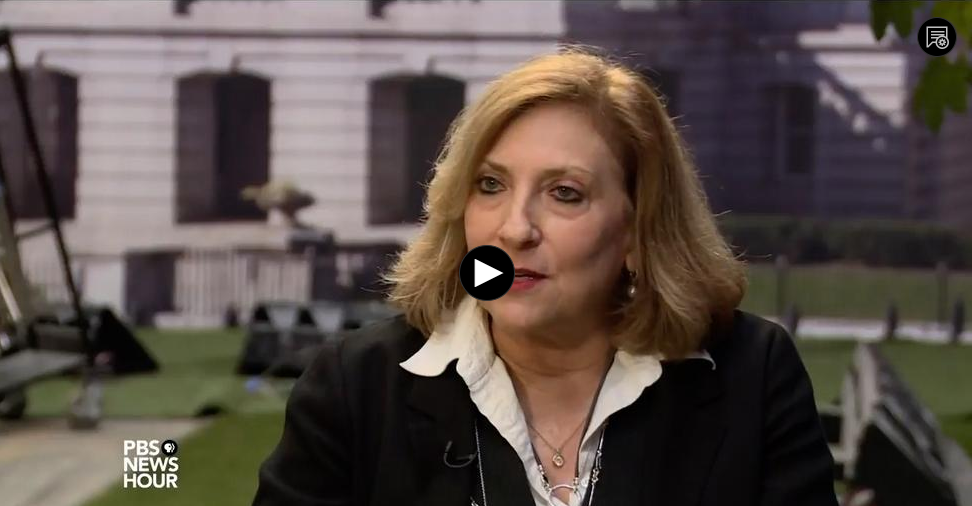
The ‘Homeland’ TV Director Who Made It Her Mission To Mentor Women
Behind the scenes of the acclaimed Showtime series “Homeland” is Lesli Linka Glatter, a prolific TV director whose success she tries to make less of an anomaly. As Hollywood comes to terms with issues of gender inequity and sexual misconduct, Linka Glatter is working to help bring parity to the male-dominated industry. Jeffrey Brown joins her and the cast on the set of “Homeland.”
Full Transcript
Hari Sreenivasan:
Finally tonight, we continue our occasional series about women helping to bring equity and change to the workplace in this time of MeToo and TimesUp.
Jeffrey Brown paid a visit to the set of a veteran director who’s been hard at work at this for years.
Jeffrey Brown:
At a cemetery in Richmond, Virginia, actors Claire Danes and Mandy Patinkin shoot a scene at a funeral.
We can’t tell you who’s died this time. You will have to wait until later in this seventh season of the acclaimed Showtime series “Homeland.”
Behind the scenes, Lesli Linka Glatter, one of television’s most respected and prolific directors, who knows what it takes to do the job well.
Lesli Linka Glatter:
Certainly, tenacity.
Jeffrey Brown:
Tenacity.
Lesli Linka Glatter:
Yes. It only takes one person to say…
Jeffrey Brown:
Which means don’t give up.
Lesli Linka Glatter:
Don’t give up, no matter how difficult it is. And wear comfortable shoes. That’s very important.
Jeffrey Brown:
Tenacity, one, comfortable shoes, two.
Lesli Linka Glatter:
Yes.
And don’t pretend to know something you don’t, because you will get caught, someone will know, and then you won’t learn. And learn everyone’s name on the first day of shooting.
Jeffrey Brown:
It’s a philosophy that’s taken Linka Glatter, now 64, to the top of her profession, directing more than 100 hours of TV, including such shows as “E.R.,” “The West Wing,” “Mad Men,” as well as “Homeland,” where she also serves as an executive producer.
The show, created and led by Alex Gansa, has been shot on locations around the world, as CIA agent Carrie Mathison, played by Danes, battles terrorists in the Middle East and Europe and, these days, dark forces within the American government.
This season, much of the action is set in Washington, D.C.
Lesli Linka Glatter:
Welcome to our Situation Room.
Jeffrey Brown:
But the shooting is being done in nearby Richmond, indoors in a large warehouse transformed into the White House and other government settings.
Once again, “Homeland”‘s plot has a ripped-from-the-headlines feel.
Lesli Linka Glatter:
We’re in a very divided, unstable world.
Jeffrey Brown:
Imagine that.
(LAUGHTER)
Lesli Linka Glatter:
I know.
Jeffrey Brown:
And we have a president of the United States.
Lesli Linka Glatter:
Yes, a president at odds with her intelligence community, in a world that’s kind of a post-truth world.
Jeffrey Brown:
But for Linka Glatter, there’s another pressing issue of the moment in her own field, for, while she’s made it as a director, too many other women have not had the opportunity.
Lesli Linka Glatter:
I started directing a while ago. And if you would have asked me, would we be discussing this, I would have said, absolutely not, Jeff. No way. This will be a nonissue, nothing to discuss.
And the fact that we are still having to talk about that is very surprising to me.
Jeffrey Brown:
She points to a survey by the Directors Guild of America showing just 21 percent of TV episodes in 2016-’17 season were directed by women.
Lesli Linka Glatter:
I don’t think anyone is sitting in an office and twirling a moustache and going, oh.
Jeffrey Brown:
No women.
Lesli Linka Glatter:
No women. Let’s not hire the women.
I think it’s deeper than that. I think it’s, you know, in that land of unconscious bias, where women are still all lumped together. And I have had it said to me, you know, we hired a woman once, and it didn’t work.
Jeffrey Brown:
You have literally had that said to you?
Lesli Linka Glatter:
Oh, yes, multiple times.
Jeffrey Brown:
You think about arguments you might hear, like a lack of qualified women.
Lesli Linka Glatter:
Yes. That’s so not true.
Jeffrey Brown:
That’s not true.
Lesli Linka Glatter:
Absolutely not.
Jeffrey Brown:
But you still hear that?
Lesli Linka Glatter:
You still hear that, because it’s easy. The handful of women that are working all the time, OK, yes, they’re qualified because they work all the time.
But there are so many women who are definitely qualified that are not. So, it’s just not an equal playing field yet. It comes up often that a young director, a male director, will do a small indie film, and the next movie they’re doing is a huge studio…
(CROSSTALK)
Jeffrey Brown:
Right, million, multimillion.
Lesli Linka Glatter:
Yes, a $100 million movie.
That has not happened for women. It would be said, oh, she doesn’t have enough experience. But, somehow, a man has enough experience.
Jeffrey Brown:
Who is in charge, she says, also directly connects to the sexual misconduct issues that have come to the fore.
Lesli Linka Glatter:
Honestly, I don’t know any woman that hasn’t been put, and myself included, in some sort of position where you can’t quite believe this is happening.
Now, there are levels to that. Whether you’re talking about sexual harassment or, you know, hostile work environment, you know, there are degrees of all of that. But I think it’s coming out because it’s been unspoken. And the need to speak and feel that it’s OK to finally speak is hug.
And no one should ever be in a position where they’re, you know, harassed or abused. It should never happen. And you shouldn’t create an environment where that can happen.
Jeffrey Brown:
Back at the cemetery, Mandy Patinkin, who plays veteran CIA operative Saul Berenson, spoke of working with Linka Glatter.
Mandy Patinkin:
Lesli wants as much input from the people that are there. And, in my opinion, that’s a smart director, because that’s a collaborative effort, it’s a collaborative game. And you’re being foolish not to ask the other people what they feel, what they would do, and to listen, and to be ruthless in terms of making sure that they are telling the story.
Jeffrey Brown:
Why do you think there are so few women directors, still?
Mandy Patinkin:
I think there are so few women directors because the world has been run by men, and the world isn’t doing so well. The world is certainly not doing very well now.
Jeffrey Brown:
During a break at another site, Claire Danes shared her experience.
Claire Danes:
Our show is surprisingly diverse, and in no small part because of Lesli’s involvement. She really makes it a priority to hire people who are not sufficiently represented. So we have more female directors than most productions. But, still, it’s not enough.
Jeffrey Brown:
Has that been true for you in your career or is something you notice?
Claire Danes:
Yes. I mean, it’s impossible not to. But I think that is starting to change. It’s a powerful phenomenon that’s occurring right now, and it seems to be having a real impact.
Jeffrey Brown:
Linka Glatter credits her rise in large part to the support she got from powerful male mentors, including Steven Spielberg, for whom she worked during his 1980s TV series “Amazing Stories.”
Lesli Linka Glatter:
My first day of shooting on that, “Amazing Stories,” I ended up doing three of them, so it was my film school on every level.
There were 200 guys storming a beach in World War II with 12 cameras. So, is that a gender thing? I don’t know. It was a filmmaking thing. It was a story thing.
Jeffrey Brown:
She’s made it her business to mentor women ever since, having them shadow her while she works.
Lesli Linka Glatter:
That’s thrilling to me.
Jeffrey Brown:
Many, she says, now with strong careers themselves.
Lesli Linka Glatter:
I should also say, Jeff, I was told when I first started doing this by other women, you know, why are you doing this? You’re going to make it harder for yourself.
Jeffrey Brown:
Really?
Lesli Linka Glatter:
Yes. Yes. And, again, remember, I started…
(CROSSTALK)
Jeffrey Brown:
You mean as in, like, rocking the boat, or just…
Lesli Linka Glatter:
No, not rocking the boat, just like there’s only room for one of us, and it better be me.
Jeffrey Brown:
Oh.
Lesli Linka Glatter:
And if you are bringing all these women in, it’s going to affect your career.
And I can tell you categorically that has never happened. It certainly didn’t, by helping other women direct, never hurt me as a director. I’m still here, you know, tough old broad.
(LAUGHTER)
Jeffrey Brown:
Now, she’s involved in a new push aimed at gender parity, working with NBC Entertainment on the Female Forward initiative.
Beginning in the fall, 10 women will shadow directors on an NBC series, and then direct at least one episode themselves.
“Homeland,” of course, also features strong women in front of the camera, including Elizabeth Marvel playing the president, as well as Danes.
While the show continues to explore the shadowy world of secret intelligence, while Glatter and others aim for more women in positions of power in their world.
For the PBS NewsHour, I’m Jeffrey Brown on the set of “Homeland” in Richmond, Virginia.
Related Stories:
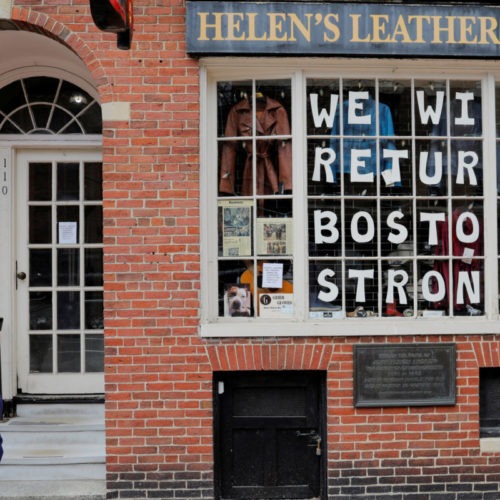
Here’s Who’s Being Hit Hardest By The Economic Downturn
The current estimated unemployment rate far exceeds the 10 percent peak reached in the Great Recession in 2009. It is the most devastating loss of jobs since the Great Depression, when economists estimate the unemployment rate reached 25 percent in 1933.
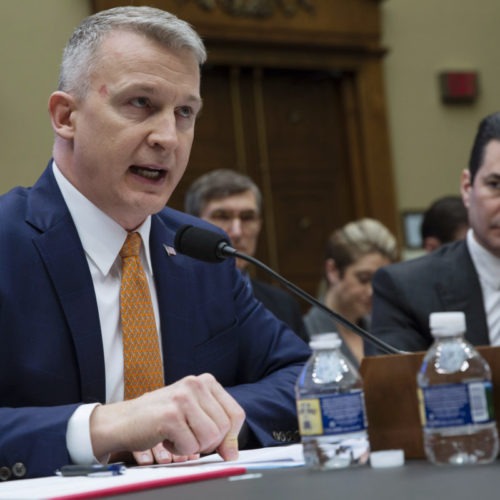
Read: Whistleblower Complaint Claims Federal Response To COVID-19 Prioritized Politics Over Science
A former vaccine expert with the U.S. Department of Health and Human Services (HHS) alleges in a whistleblower complaint that he was ousted because his efforts to address the coronavirus pandemic conflicted with those of President Donald Trump and other administration officials.

Trump’s Taxes, Birth Control, ‘Faithless Electors’ Headline Supreme Court’s Historic Phone Arguments
During historic telephonic arguments this week and next, the U.S. Supreme Court will take up major challenges involving access to President Donald Trump’s financial records, birth control health insurance, “faithless electors” in presidential elections and the constitutionality of the federal ban on robocalls, among others.


